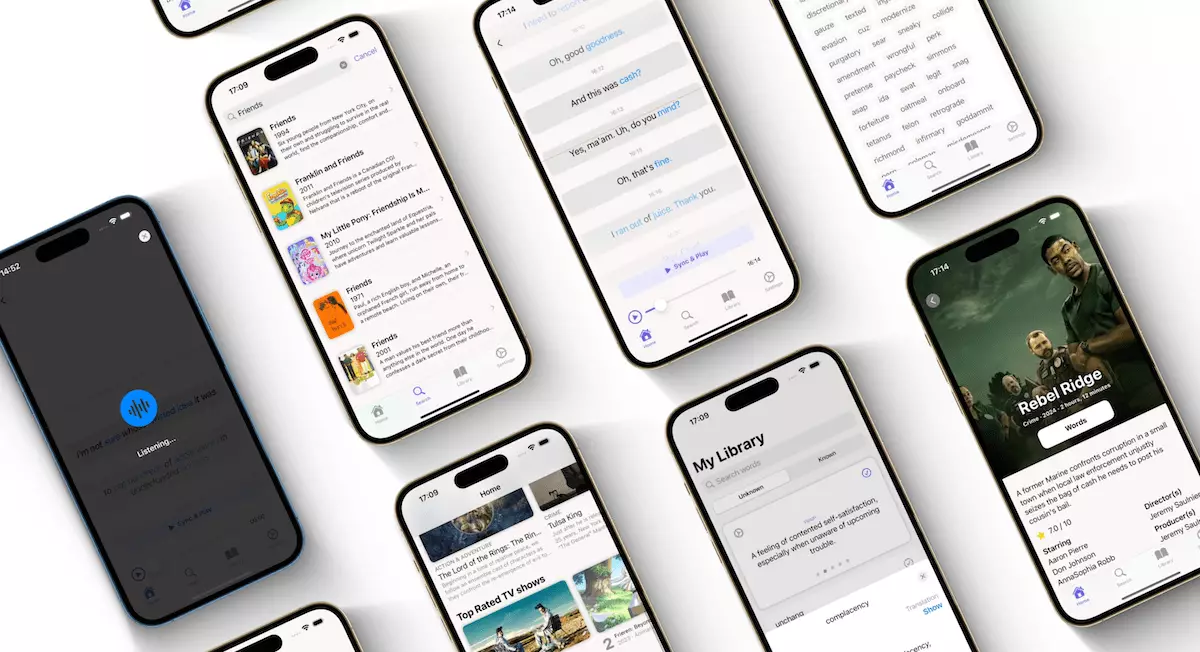Learning a new language can often feel overwhelming, especially for non-native speakers attempting to navigate complex vocabulary in real-time scenarios, such as watching movies or TV shows. With the advent of technology, language learning has been revolutionized, and one noteworthy app making waves in this domain is Wordy. Developed by a young indie programmer, Sándor Bogyó, this innovative iOS application employs advanced algorithms to facilitate a more engaging and effective learning process for English language learners.
Wordy was born out of a personal challenge faced by its creator. At just 23 years old, Bogyó, a native of Budapest, discovered a gap in the market while watching English-language content. Frustrated with the interruptions that came from manually searching for translations of unfamiliar words or phrases, he envisioned a solution that would integrate seamlessly into the viewing experience. Drawing from his prior experience with the Chrome extension Language Reactor, Bogyó realized that a mobile app could provide the flexibility and convenience learners require while consuming media.
Wordy’s connection to a vast library—boasting over 500,000 titles ranging from popular HBO series to beloved Disney+ shows—directly addresses users’ needs for accessibility and variety. This expansive catalog not only enriches the learning experience but also affirms Bogyó’s commitment to providing learners with ample opportunities for practice, thus catering to different interests and engagement levels.
At the core of Wordy’s functionality lies an impressive AI framework designed to streamline the language acquisition process. When a user selects content to watch, the app analyzes the episode’s subtitles in real-time. Utilizing sophisticated speech recognition technology, Wordy identifies spoken sentences from the audio streaming from the user’s device. This synchronized operation allows the app to highlight new and potentially challenging vocabulary directly as it appears onscreen, transforming a passive viewing experience into an interactive one.
Furthermore, the app offers a unique feature: a summary page for each episode. This page categorizes words by difficulty, ensuring that learners can easily target their vocabulary growth. By sorting words into levels like Proficiency English, Intermediate, and Beginner, Wordy provides users with a clear pathway for their language journey. Additionally, learners can save new words into a personal library and utilize digital flashcards to reinforce their knowledge later, thus ensuring that learning extends beyond just passive engagement.
Strengths and Areas for Improvement
One of Wordy’s standout strengths is its accurate translations, which are tailored to suit the user’s language proficiency level. During testing, users reported that the app skillfully identified more complex terms like “plagued,” “nefarious,” and “seance,” offering clear and comprehensible translations. This functionality not only aids vocabulary acquisition but also fosters a deeper understanding of nuanced language use in context.
However, despite its advantages, Wordy has areas that warrant attention and improvement. Currently, it supports only English, which may limit its appeal in a global market where diverse language support is crucial. Competitors like Language Reactor have capitalized on this feature by offering multiple language options. Bogyó acknowledges this gap and has expressed a deliberate strategy to add new languages. He focuses on quality assurance, ensuring that any added language integration meets high standards of accuracy before launching, a commendable but time-consuming approach.
Wordy is a promising tool that merges entertainment with education, transforming the way learners engage with the English language. By leveraging AI technology and a massive library of content, it caters to the needs of learners by providing an interactive and enriching experience. Despite some limitations regarding language availability, Sándor Bogyó’s commitment to quality and user experience positions Wordy as a game-changer in the realm of language learning. As the app evolves and expands its linguistic capabilities, it holds the potential to become an indispensable resource for new learners navigating the complexities of English.

